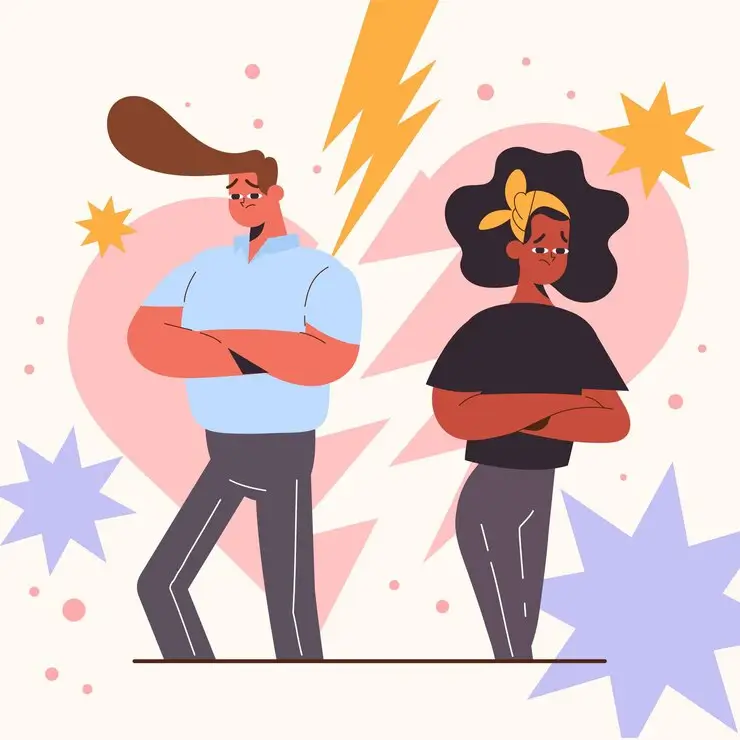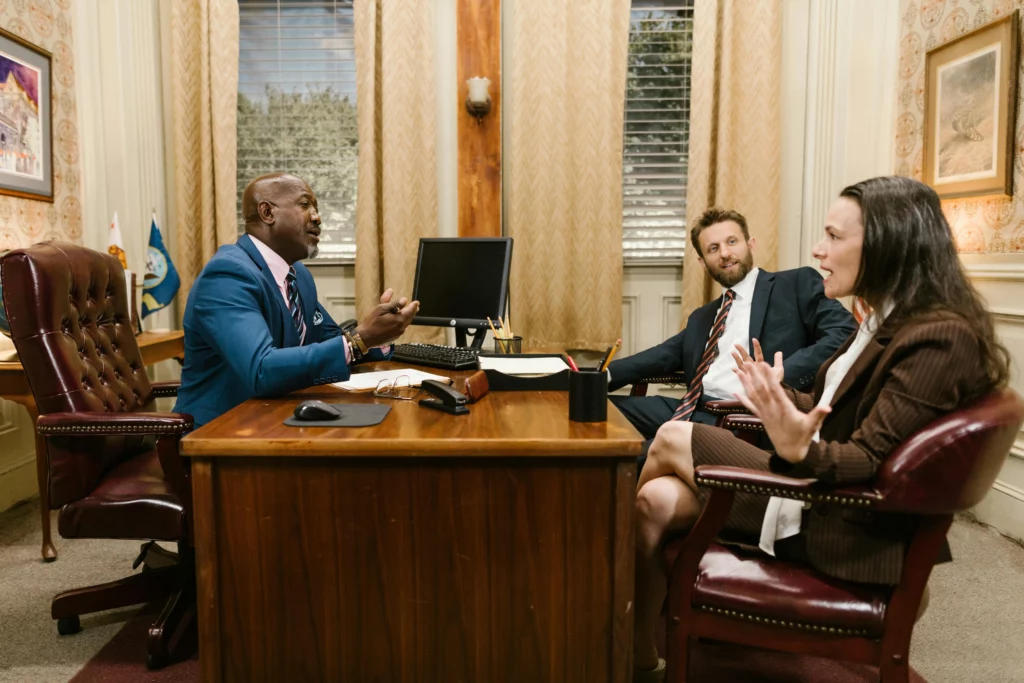Avoiding conflicts in a relationship is a very necessary part of a relationship, it pertains to both partners consciously trying to avert arguments, disagreements and problems. This can happen in many ways, they may change the topic if an argument is perceived or physically abandon a topic and do other things to avoid disagreements.
However, while this may seem like a very helpful and peaceful approach to avoiding conflicts in a relationship, it usually leads to unresolved issues that can further build up as the foundation of a major relationship problem with time.
Partners who leave unattended as a means of avoiding conflicts usually fear confrontation, rejection, or abandonment. Always know that using the above means to avoid conflicts, though may be a good choice but for a moment.
In the long run they are not always the most effective. However, this conflict avoidance approach usually leads to future complications in the relationship, frustrations, emotional distancing and a lack of genuine intimacy. If you’re looking to understand conflict avoidance, its causes and how to tackle it. Hang on tight as this article is just what you need.
Causes of Conflicts Avoidance
There are several factors that may cause partners to settle for conflict avoidance methods instead of direct confrontation. They are:
1. Childhood experiences: If a partner grew up in a household where conflicts were not resolved properly through discussions and other straight forward ways, this can unconsciously instill a fear of confrontation in them.
2. Past relationship trauma: A partner’s previous relationship experience may be a traumatic one that happened as a result of a conflict, this may make them try to avoid addressing issues at all cost in their current relationship.
3. Personality traits: It is just natural for some people to always avoid conflicts through changing topics and other ways that leave them unattended to, based on their personality type and temperament.
4. Cultural factors: There are certain cultures that prioritize harmony between partners and may discourage direct confrontation, which will thereby initiate these conflict avoidance behaviors.
By understanding the foundation causes of conflict avoidance behaviors in partners, rest assured you’ve taken your first step towards addressing the issue of conflict avoidance in your relationship.
Signs of Conflict Avoidance in a Relationships
Here are a few signs to look out for in order to identify conflict avoidance in a relationship, and for addressing it effectively:
1. Frequent use of placating phrases: if your partner always agrees with your point of view to avoid disagreement, making use of phrases such as “Whatever you want” or “It doesn’t matter to me.” That’s a sign of conflict avoidance.
2. Changing the subject: your partner may try to change the subject of a topic perceived to bring an argument. This is always a means to avoid conflicts or any form of disagreements.
3. Physical withdrawal: if your partner or you, leaves the room or finds an excuse to be elsewhere when there’s an argument.
4. Emotional shutdown: this refers to I’d just become unresponsive and lost in the middle of a discussion pertaining relationship issues.
5. Overemphasis on positivity: If they always insist that everything is fine and refuse to attend to pending relationship problems.
6. Deflection through humor: if they use jokes or sarcasm to deviate intentionally from the topic on ground.
All the aforementioned are conflict avoidance behaviors that can create a false sense of peace and give short term relief, in the long term the issues may still sprout up and cause major relationship damages.
The Impact of Conflict Avoidance on Relationships
In that conflict avoidance may seem like a useful means to maintain peace in a relationship, its long-term effects on a relationship is not guaranteed. However, here are a few ways conflict avoidance impacts in a relationship:
1. Unresolved issues: Major relationship problems may never be addressed till they’ve caused damage to the relationship, automatically becoming more difficult to resolve later.
2. Emotional distancing: In a relationship where conflict avoidance has been practiced overtime, partners may experience a breach in emotional connection and intimacy.
3. Resentment buildup: Over time, suppressed feelings, unmet emotional needs, anger buildup from unattended issues may lead to growing resentment between partners in a relationship.
4. Communication breakdown: The couples may experience a communication breakdown based on unattended conflicts, they also may not be able to discuss other topics openly as they are closely trying to avoid conflicts.
5. Loss of trust: In most cases, a partner may feel like there is someone else evading their attention from attending to pending relationship issues, thereby leading to reduced trust.
6. Potential for sudden relationship breakdown: Over time if the issues are consistently avoided, the relationship may reach a breaking point where all the unattended problems become overwhelming, leading to a break up or divorce.
It is important to understand the impacts of conflict avoidance in a relationship so as to work towards developing a healthier communication pattern, for a better relationship.
Tips To Tackle Conflict Avoidance
It is important to battle conflict avoidance, though it may require your conscious effort, time and willingness to make a change. Here are a few helpful strategies to overcoming conflict avoidance:
1. Acknowledge the problem: This is the first step to tackling conflict avoidance in a relationship, it involves admitting that conflict avoidance is an issue in your relationship.
2. Understand personal triggers: This involves identifying the topics that trigger those conflicts avoidance behaviors and try to talk about them.
3. Practice self-reflection: it is important to take some time alone, identify the roots of conflict avoidance, you can do this with the help of a therapist or counselor.
4. Start small: You can start by addressing little disagreements to build your confidence in handling major conflicts.
5. Effective Communication: It is important to be open in your communication, do not hesitate to share your concerns, express your feelings and use “I” statements to avoid sounding accusatory.
By applying these strategies rightly, couples can overcome the habit of conflict avoidance and work towards developing a healthier, better, fulfilling relationship.
Wrap Up
In a nutshell I’ll say, in as much as conflict avoidance methods may seem to you like a path to peace, in most cases it backfires and leads to future relationship issues. By identifying the various signs of conflict avoidance in a relationship and its impact in your relationship, partners can now work towards overcoming it and building a better, stronger relationship.
Moving from conflict avoidance to healthy conflict resolution patterns may be a challenging task, but it is certainly worth it. It results in better intimacy, connections, trust, openness and satisfaction in the relationship.







